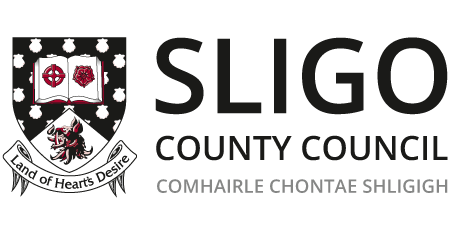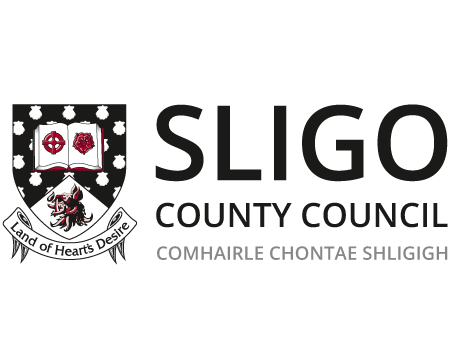Housing (Standards for Rented Housing)
Minimum Standards in Rented Accommodation
The quality of rental accommodation is critical to the success and sustainability of the residential rental sector and to its attractiveness as a long-term accommodation option for households. Residential rental properties must provide a safe, comfortable and healthy environment to live in. All landlords have a legal obligation to ensure that their rented properties comply with certain minimum physical standards and enforcement of these regulations is the responsibility of each Local Authority.
These minimum standards are set out in the Housing (Standards for Rented Houses) Regulations 2019, which came into effect on 1st May, 2019. These regulations replace the Housing (Standards for Rented Houses) Regulations 2017. The main objective of these regulations is to establish minimum standards in order to protect the health and wellbeing of tenants and which makes private rented properties safe and fit for habitation.
The main changes to the 2017 Regulations are contained in those provisions dealing with Food Preparation and Storage and Laundry – Regulation 7. In order to encourage and incentivise landlords to offer longer term leases and to encourage a transition to a model of longer term rental options for households, sub-section (5) of Regulation 7 is being amended, such that landlords providing longer term leases (minimum of 10 years), will no longer be required to ‘furnish’ such properties.
The standards for private rented properties are set out in these new regulations and provide for the following:
Landlords of private rented properties, with some exceptions, are required to ensure that such houses meet certain minimum standards. The standards relate to, inter alia, structural condition, provision of sanitary facilities, food preparation, storage and laundry, availability of adequate heating, lighting and ventilation, safety of oil, electricity and gas installations, fire safety, refuse facilities and to provide information to the tenants.
Landlords responsibilities include the following -
Landlords are required to ensure that their rental properties comply with the Housing (Standards for Rented Houses) Regulations 2019 while let and while available for letting. They have a legal duty to ensure that their rental properties meet the minimum physical standards. They must ensure that their rented properties and the equipment provided with it are maintained in good condition and repair, arising from the wear and tear associated with normal use. That means regularly reviewing the condition of the property and carrying out repairs when needed.
Tenant responsibilities include the following -
Tenants must also take responsibility for the property they are renting. They are required to exercise due care when using the dwelling and equipment in it and to promptly inform the landlord when repairs are needed. Tenants are responsible for the repair of damage, either accidental or deliberate, that is not attributable to normal use.
Inspections of Private Rented Accommodation
Sligo County Council is responsible for enforcing the minimum standards in rented accommodation in County Sligo. Sligo County Council Housing Inspectors are ‘authorised persons’ who are empowered to inspect a private rented house. Sligo County Council has an ongoing active inspections programme. Inspections are also carried out on a proactive basis and in response to complaints from tenants and/or members of the public.
Sligo County Council, through inspections, determine whether a property meets the minimum standards for rental accommodation and, where the property does not, for ensuring compliance through the use of Improvement and Prohibition Notices and legal proceedings.
Improvement Notice
An Improvement Notice sets out the works a landlord must carry out, within a set time frame, to remedy any breach of the regulations.
Prohibition Notice
Where an Improvement Notice is not complied with, Sligo County Council may issue a Prohibition Notice, which directs a landlord not to re-let a property until the breach of the regulations has been rectified.
Where a landlord re-lets a private rented house in breach of a Prohibition Notice, they may be prosecuted and on conviction, may be subject to a fine not exceeding €5,000 or imprisonment for a term not exceeding 6 months or both, along with a daily fine of €400 for a continuing offence (together with orders for the costs and expenses of the investigation, detection and prosecution of the offence, which may be considerable).
Landlords and tenants are required to allow the authorised Inspector access to the property to undertake inspections.
Dealing with Complaints
Tenants occupying accommodation which they believe does not meet the relevant minimum standards, should in the first instance, contact the landlord in order to give the landlord an opportunity to put the matter right.
Tenants have certain responsibilities, such as allowing the landlord reasonable access to inspect the property and carry out any necessary works at a mutually acceptable time.
If a tenant has notified the landlord regarding the need for repairs, but the problem has not been rectified by the landlord, then the tenant can choose to refer the matter to the Housing Department of Sligo County Council for investigation.
Complaints can be made by
- Telephone: 071 9111329 / 071 9111214
- Email: rtbinspections@sligococo.ie
- Written correspondence to Sligo County Council Housing Section, County Hall, Riverside, Sligo F91 Y763
When making a complaint, the tenant will need to provide their full name, address and telephone/mobile number along with full details of their concerns/query. The tenant will also be required to provide the name, address and telephone/ mobile number of the landlord.
When a complaint is received by the Housing Department, an inspector will contact the complainant to establish if, in his/her opinion, the complaint requires further investigation.
If an inspection is to proceed, the Housing Inspector will write to the landlord and the tenant to schedule an inspection. A time and date will be clearly stated in the letter. If the landlord intends to be represented at the appointment, relevant details (including name and telephone number) must be provided to the Housing Department in advance.
Residential Tenancies Board (RTB)
The Residential Tenancies Board, established in 2004, is the statutory body, set up to support and develop a well-functioning rental housing sector. Their role is to regulate the rental sector, provide information to inform policy, maintain a national register of tenancies, resolve disputes between landlords and tenants, initiate an investigation into conduct by a landlord and provide information to the public to ensure tenancies run smoothly and no issue arise.
Tenancies in private rented residential accommodation must be registered by the landlord with the Residential Tenancies Board (RTB) and a registration fee must be paid. Landlords are required to register their tenancies annually on the anniversary of the date the tenancy began. Each application shall be contained in the Register of Tenancies which is managed by the RTB. Tenancy registration forms and other publications are available on the RTB’s website https://www.rtb.ie
One of the core functions of the RTB is to provide a timely and cost effective dispute and mediation service between landlords and tenants through their Dispute Resolution Service. This service offers a choice of resolution types to parties – mediation or adjudication, with the option to appeal the outcome to a tenancy tribunal. For example, where a landlord is not responding to a request to repair a heating appliance or where a tenant is using the property in such a way as to lead to deterioration in the condition of the property and breach of a standard.
The RTB has a new investigations and sanctions unit dedicated to investigating potential breaches of rental law by a landlord in relation to a rent which has been lawfully set within a Rent Pressure Zone (RPZ) or where a notice of termination has been served citing a reason which the landlord did not ultimately act on. These investigations can commence either pro-actively by the RTB or on the basis of a complaint from a member of the public. Sanctions available to the RTB include a caution and / or costs incurred by the RTB investigation of the matter up to €15,000.
Further information is available on their website https://www.rtb.ie
Rent Book Regulations
The Landlords are obliged to provide tenants with a “rent book” (or other documentation serving the same purpose) at the commencement of a tenancy. This applies to dwellings rented by private landlords, voluntary bodies, local authorities and employers. The requirements to provide a rent book is set down under:
- Housing (Rent Books) Regulations 1993 http://www.irishstatutebook.ie/eli/1993/si/146/made/en/print
- Housing (Rent Books) Regulations (Amendment) Regulations 2004 http://www.irishstatutebook.ie/eli/2004/si/751/made/en/print
- Housing (Rent Books) Regulations (Amendment) Regulations 2010 http://www.irishstatutebook.ie/eli/2010/si/357/made/en/print
- Section 17 of the Housing (Miscellaneous Provisions) Act 1992 http://www.irishstatutebook.ie/eli/1992/act/18/enacted/en/print
For Further Information, See the Following -

